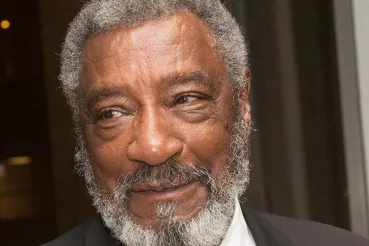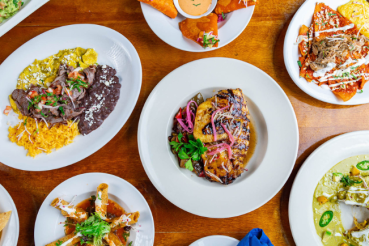What, to the American slave, is your 4th of July? I answer; a day that reveals to him, more than all other days in the year, the gross injustice and cruelty to which he is the constant victim.
– Frederick Douglass, Pre-Civil War Decade 1850-1860
What, to the privileged, enlightened and heavily opinionated, impassioned idealist, “free” black man, living in this United States of America, is your 19th of June, in the year 2020? I answer.
Privileged
To be honest, growing up in the predominantly white suburb of Schaumburg, Illinois, even as late as high school, June 19th meant nothing to me. Back then, I was just happy if it was a sunny spring day, especially after the drudgeries of football camp. The remainder of the day would be spent kicking it with the homies, a motley crew of nerdy jocks.
We’d spend the majority of our free time watching Dick Butkus highlight videos, throwing measly weights around in my buddy’s garage gym, reciting every line to the newest ’90s gangster rap album in heavy rotation that week, and generally engaging in the typical suburban high school boy tomfoolery.
Since Tupac, Bone Thugs-n-Harmony and Twista weren’t rapping about Juneteenth, the oldest nationally celebrated holiday honoring the ending of the enslavement of black people in this country, it wasn’t on our radar. Union Army Major Gen. Gordon Granger’s reading of the military order proclaiming “all slaves are free” to the city of Galveston, Texas, on June 19, 1865, certainly wasn’t a day of significance learned during our many years studying U.S. history in Schaumburg classrooms.
My youth was spent in blissful ignorance. I was privileged to grow up in a household with two loving parents who fought long and hard to give their children every opportunity to succeed in this world. Doing the best they could, my parents cloaked their kids in a protective cocoon to shield us from the ills of the racist society lurking just outside our door.
Enlightened and heavily opinionated
Thinking back upon it now, though, having long ago emerged from my cocoon as an enlightened and heavily opinionated adult, I remember when:
- In preschool, kids would ask me why my nostrils or lips were so big.
- I was continually asked why I got darker in the summer in elementary school. (“Wait, black people can tan?”).
- A neighbor in junior high called me the N-word — simply because I was four years younger and waxed him in a game of one-on-one tackle football (with another white neighbor serving as the all-time quarterback).
- In high school, our mailbox was the only one on our street routinely bashed and broken into fragments.
- I came home from college, and my mom told me that a different neighbor (this time from next door), broke into our house and carved that very same N-word into our kitchen wall.
Each such instance was an example of the systematic racism that has infected the very essence of this nation, though its members universally tout and celebrate it as the land of the “free” each and every 4th of July.
It has been made plainly clear, with every new, atrocious news story released in 2020 announcing the premature death of yet another black American, Granger’s proclamation that “all slaves are free” has not reached the ears and consciousness of every U.S. citizen.
If it has, as enlightened as I may be, I cannot reconcile that proclamation with the horrific and unconscionable loss of life witnessed so far this year:
- Ahmaud Arbery
- Breonna Taylor
- George Floyd
- Rayshard Brooks
- Black Americans dying from COVID-19 complications at a rate of nearly three times that of whites, due to gross inequalities pertaining to the social determinants of health
- Otis/Titi Gulley and Robert Fuller, each having been found hanging from trees in the past few weeks, and each initially ruled a suicide; their deaths are eerily reminiscent to the thousands of lynchings of black people throughout America’s history.
Impassioned idealist
In response to these and other deaths, civil unrest has ensued. As an impassioned idealist, I view the protests across our nation, and all over this world, as far more than a series of marches. They are emblematic of a righteous movement. A movement led by young people, who have emerged from their own protective cocoons as similarly enlightened, heavily opinionated and impassioned idealists taking every action, in the best way they can, to bring about desperately needed change.
The world’s young are responding to the stronghold and lasting legacy of slavery on black Americans’ lives. Declarations and chants of “Black Lives Matter” symbolically echo the words “all slaves are free,” so that each and every U.S citizen, and even those around the world, hear and simply cannot deny the reality that if the lives of black Americans continue to be devoid of value, then none of us can be free.
This exclamation is louder and clearer to me than Tupac’s bars ever were, all those years ago. During my days of blissful ignorance, I had not yet comprehended the magnitude or source of the pain and anguish he felt, simply for being a black man born into this America.
I see no changes; all I see is racist faces;
Misplaced hate makes disgrace to races.
– Tupac Shakur, 1998
Free
What, to a free black man, living in this United States of America is my 19th of June, in the year 2020? I answer: A day that reveals to him, more than all other days in the year, the certain need for each and every American to internalize and individually work to ensure the validity of Granger’s announcement to Galveston, Texas, in 1865, proclaiming “all slaves are free.”




